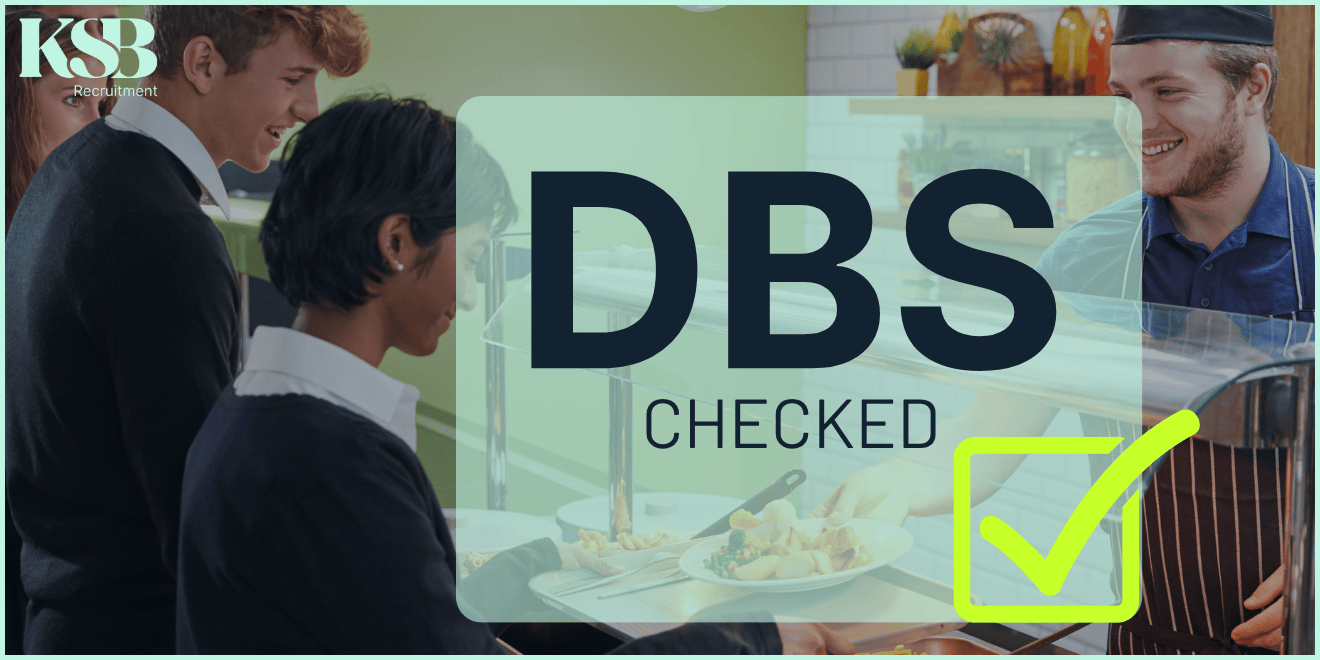DBS Checks in Hospitality: What You Need, When You Need It—And Why It Matters More Than You Think

In the hospitality industry, safeguarding isn’t just for schools and care homes. It’s becoming increasingly important in hotels, catering, events, and contract services, especially where staff interact with children, vulnerable adults, or guests in sensitive settings.
Still, many employers don’t know when a DBS check is required—or worse, assume their recruitment agency is handling it when they’re not.
The truth is: you can be held accountable if you place someone in a role that legally requires a DBS check but you didn’t complete one. That’s not just a process gap—that’s a legal and reputational risk.
Let’s clear up the confusion: who needs DBS checks in hospitality, when are they legally required, and how can you ensure your supplier is keeping you protected?
What Is a DBS Check and Why Is It Important?
The Disclosure and Barring Service (DBS) helps employers in England and Wales make safer hiring decisions by revealing criminal records or safeguarding concerns.
There are three main types:
-
Basic DBS – shows unspent convictions
-
Standard DBS – includes spent and unspent convictions, cautions, reprimands
-
Enhanced DBS – includes everything above plus checks against the barred lists for working with children and/or vulnerable adults
In hospitality, DBS checks are not legally required for every role—but they are essential for specific environments.
For example:
Care home catering staff
Hospital-based hospitality teams
School kitchen staff
vent staff working in children’s venues
Any role with unsupervised access to vulnerable people
Failing to obtain the correct DBS check in these situations could result in:
-
Legal liability if an incident occurs
-
Reputational damage to your brand
-
Breach of safeguarding regulations
📎 Read the Home Office guide to DBS eligibility
Why Hospitality Employers Often Miss the Mark
DBS requirements can feel like a grey area in hospitality. Many businesses believe:
“They’re only needed for healthcare or education.”
“My agency said they already did one last year.”
“We don’t deal with vulnerable people, so we’re fine.”
But here’s the reality:
-
Hospitality workers often work across multiple sites, including care, hospital, or education settings.
-
Agencies may run basic checks only—even when enhanced checks are legally required.
-
DBS certificates are not “transferable” between roles or settings unless registered with the DBS Update Service.
So, if you’re using temporary staff, and you haven’t confirmed which check was completed—you may be unknowingly exposed.
Ask Yourself: Are You Covered?
Here’s a quick way to assess whether you’re DBS-compliant:
-
Do you operate in any setting involving vulnerable adults or children?
-
Are you clear on which level of check is needed for each role?
-
Do you receive a copy or confirmation of every DBS check from your recruiter or HR team?
-
Are the checks recent and role-appropriate (not expired or out of context)?
-
Are staff enrolled in the DBS Update Service for ongoing visibility?
If you can’t confidently answer yes to all of the above, your safeguarding may have blind spots.
DBS in Multi-Site and Agency Work: Why It’s Tricky
Hospitality often relies on flexible staff across various locations. But DBS checks are role- and site-specific.
That means:
-
A chef working in a private hotel may not need a DBS
-
The same chef working in a school or care home likely does
-
Agencies must tailor checks to each assignment—not apply one-size-fits-all screening
So if your recruiter isn’t asking about the end location, or doesn’t specify the level of check used, you might not be getting what you need.
DBS Compliance Checklist for Hospitality Employers
Here’s what to expect from a compliant recruiter or HR team:
Asks you about the setting and confirms whether a DBS is needed
Identifies whether Basic, Standard or Enhanced DBS is appropriate
Carries out the check before the worker is placed, not after
Shares documentation or reference numbers for your audit trail
Advises whether the worker is on the DBS Update Service
Reviews DBS status before each new assignment or location change
If your recruiter isn’t doing this—or you’re not asking—now’s the time to tighten up.
Don’t Wait Until Something Goes Wrong
We often hear from employers after there’s been a safeguarding incident, a failed inspection, or a rejected audit. By then, the damage is done.
But the solution is simple: ask the right questions, before anyone steps on site.
Being proactive now ensures:
-
Safer workplaces
-
Legal protection
-
Peace of mind—for you, your clients, and your team
Want to Double Check You’re Covered?
If you’re unsure whether your current recruiter is carrying out the correct DBS checks—or if you’re confused about what level is required in your setting—we’re here to help.
Give us a call on 0121 314 9365 or email us at info@ksbrecruitment.co.uk
We’ll walk you through your specific setting and help you get it right—no pressure, just support.